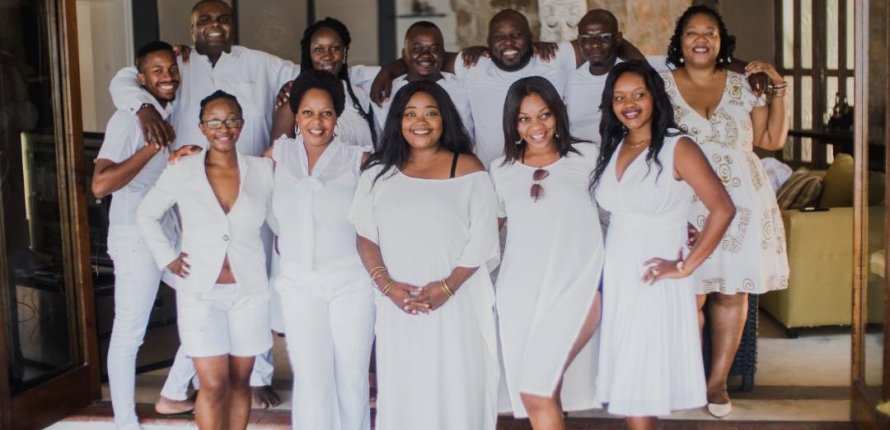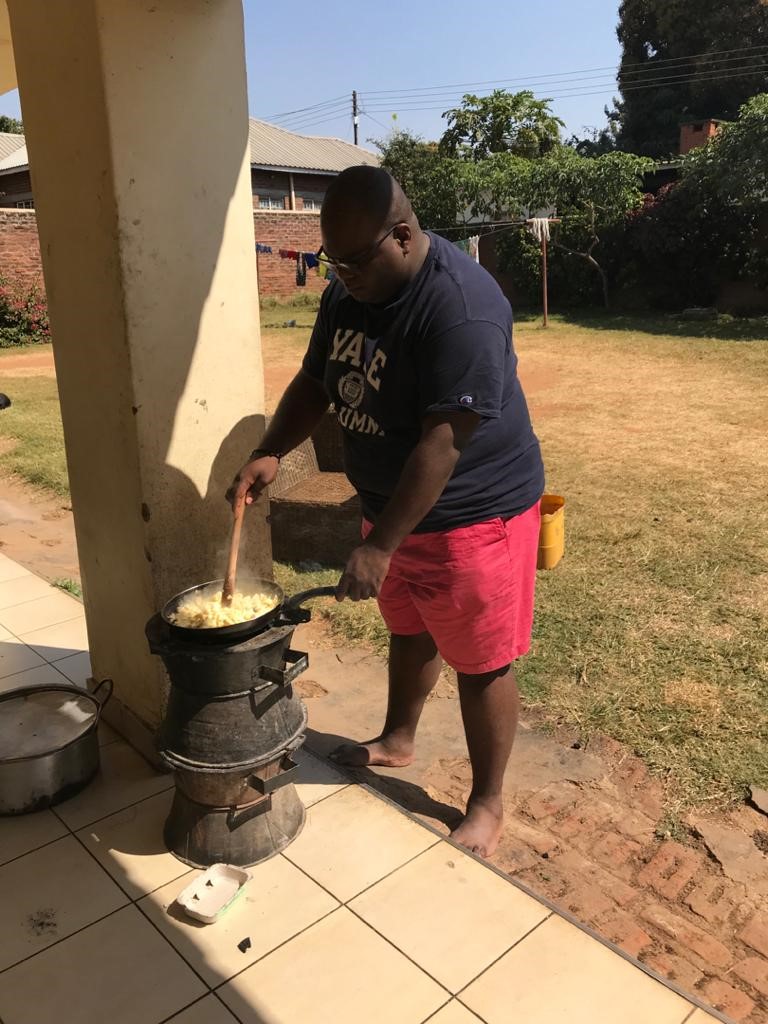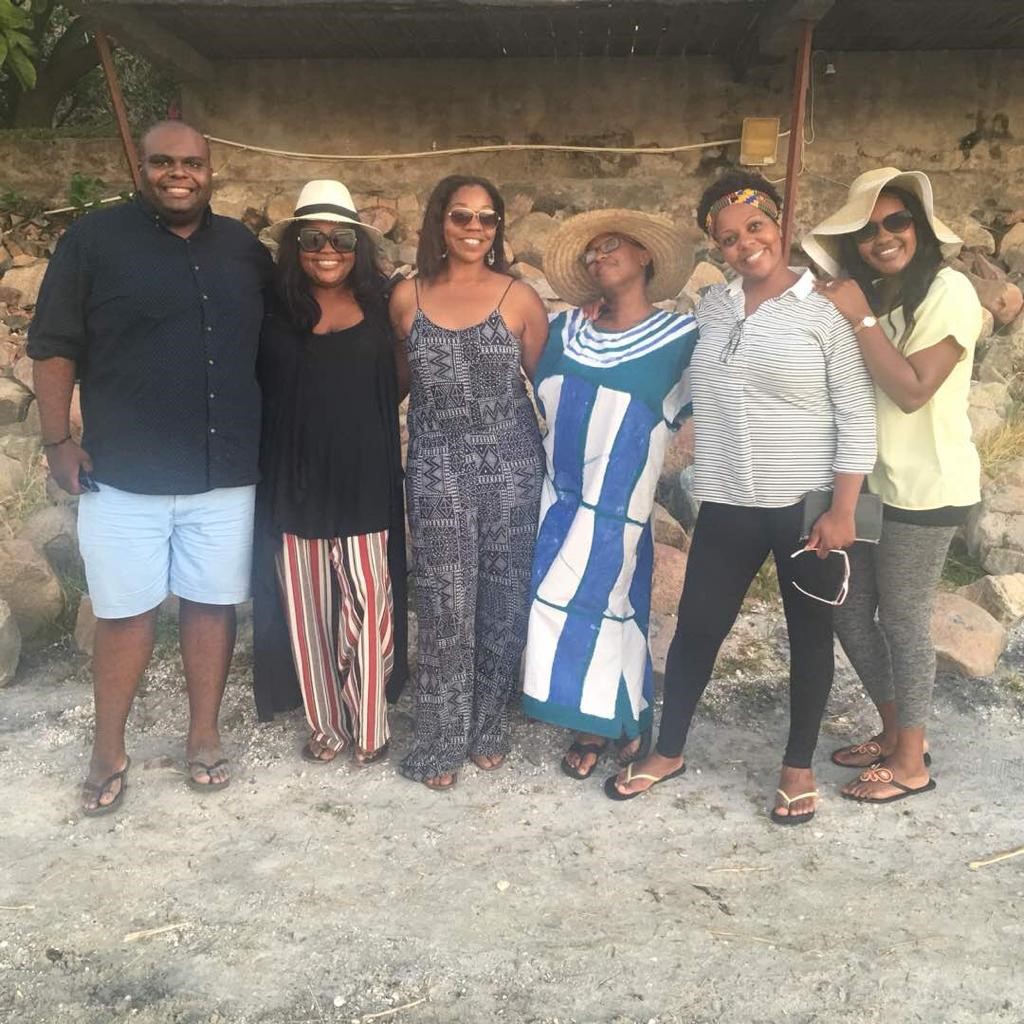Celebrating Black History Month: Q&A with Public Policy Fellow Antonio Ingram

In honor of Black History Month, Fulbright Public Policy Fellowship alumnus Antonio Ingram recounts his experience conducting research in Malawi, developing close relationships with Malawians, and the power of Fulbrighters showcasing their diversity as Americans in different parts of the world.
Q&A with Antonio L. Ingram II, Esq.
1. Tell us a little about your path to Fulbright. Who or what inspired you to apply?
I had a very unlikely path to Fulbright. I grew up in a low-income single parent home in South Los Angeles. I attended failing public schools where Teach for America regularly sent their volunteers. My environment constituted a small and insular portion of the world. The only white people that I saw growing up were teachers and municipal workers. We barely thought about other neighborhoods, let alone other countries. No one in my immediate family had the finances to travel or even owned a passport. The only glimpses I had of the outside world were through reading the newspaper and watching television. The world outside of the United States seemed like a dangerous realm whose beauty and adventure were eclipsed by language barriers, extreme poverty, untrustworthy, violent governments, and fatal diseases.
However, when I was 17-years-old, I had my first exposure to international travel. An internationally focused medical non-profit, Medicines Global, came to my high school and held a photo-essay contest. I entered the contest and the non-profit selected me and three other students from my high school as winners for a three-week trip to Nepal, where we would trek through the mountains and deliver much-needed first aid supplies to rural village outposts. I was both excited and terrified of the prospect of flying 20+ hours from Los Angeles, California to Kathmandu, Nepal. It was on this trip that I developed a love of traveling and learning about other cultures. I realized that the media’s depiction of the world was myopic at best, and I felt safer, more alive and welcomed in places like Nepal than I did in my own country at times.
After my trip to Nepal, I developed a “travel bug,” wanting to see other countries and continue to give back to communities in need through volunteer work. I attended Yale University and participated in both school-sponsored study abroad programs and student-run international volunteer trips during spring break. When I enrolled in Berkeley Law, I continued to take advantage of international travel opportunities both through the law school and informally, with friends. By the time I applied to the Fulbright Program, I had traveled to countries in Latin America, Asia, Europe and the Middle East. I was inspired to apply for a Fulbright award in order to grow as a person and stretch myself. I had never visited Africa, and the longest period I had lived outside of the country previously was eight weeks. The Fulbright Public Policy Fellowship in Malawi lasted 10 months. I knew that living abroad in an entirely new context and for that long was materially different. But I also knew that I would grow both professionally and personally. I applied to Fulbright as a continuation of my love for travel and passion for public service, and Fulbright exceeded my expectations in both of those arenas.
2. Tell us a little about your Fulbright research topic and project. What did a typical day as a Fulbrighter look like for you?
My Fulbright Public Policy Fellowship research project explored how to sensitize and convince the social and economic elites, who were involved in corrupt practices, that they, too, were impacted by the deleterious consequences of pillaging the communal coffers. I spent most of my time working for Malawi’s Anti-Corruption Bureau. I would arrive at my office in the morning and check in with my boss who served as one of the chief prosecutors. Some days we would go to the courthouse for hearings on corruption. Other days we met with witnesses for an upcoming trial, driving to different neighborhoods to interview local Malawians. Occasionally we would travel to other districts and train local government officials in anti-corruption policies and procedures, or review whistleblower complaints. I spent some days conducting legal research and writing memos regarding upcoming cases or court filings. I loved the Fulbright Public Policy Fellowship because my days were varied and full of surprises. Working at an office that prosecuted cases in a country that struggles with corruption at every level of government meant that there was never a dull moment.
.jpg)
3. What advice would you give to current Fulbrighters in the field about how to get the most out of their Fulbright experience?
I would advise current Fulbrighters to try to integrate socially into your host country. You will probably spend the rest of your life around other Americans, so let your grant period be a time when you fully step out of your comfort zone and embrace a different culture and language. My richest experiences while in Malawi stemmed from making deep and close friendships with Malawians. I learned a host of idioms, cultural and social practices that many other expatriates will never know. I learned these things through friendship and treating the people in my host country as peers.
I would also advise current Fulbrighters to have hearts of gratitude and remember that you elected to go to your host country. You were not conscripted or deployed; rather, you exercised a privileged choice to become a cultural ambassador for the United States. As Fulbrighters we are charged with promoting mutual understanding and empathy. I found that there was always a choice to point out the positive differences between my host country and the United States and bless those aspects of my experience. I found that anchoring my experience in blessing versus cursing made me have a much more rewarding time. Make sure to get all you can from what for myself and many others is the experience of a lifetime.

4. What advice would you give future Fulbrighters on the application process?
I would encourage future Fulbrighters to prepare applications that demonstrate that a Fulbright is the logical next step in your professional or academic career. Moreover, I would encourage future Fulbrighters to showcase their full and authentic selves when applying for a grant. We need cultural ambassadors from every segment of society to show the world the full diversity of our country. Even if you feel like your identity is unremarkable in your community in the United States, do not assume that is true in your host country. I know that in my Fulbright cohort, it was amazing to have so many women placed to work in African governments that were majority male and to have Fulbrighters who identify as LGBT work in eastern European countries that struggle with homophobia. The voices of Americans of all stripes matter, and I encourage applicants who come from underrepresented backgrounds to apply!

5. What might an American/someone from your home country be surprised to hear about your host country/institution/state/etc.?
I want to speak specifically to African Americans, and I would advise them that in a place like Malawi, they are welcome. Before I arrived in Malawi, I had been told that I would not get along with the people and that they would view me as just another white American and that my racial background did not matter. To my surprise, when I arrived all I found was camaraderie. Malawians would argue over what region in Malawi my ancestors were from, and everyone was trying to claim me into their tribe. I arrived in Malawi and made deep friendships in a span of ten months. I have brothers and sisters in that country who will be lifelong connections. We are more similar than we are different, and I would want black Americans to know that there is a part of us that comes alive when we visit Africa. Living in a majority black country for almost a year was transformative. Stereotypes that plague African Americans in the United States did not exist. I worked in an office full of brilliant black lawyers. I read court opinions by erudite black judges. When I got sick, I was attended to by skilled black physicians. None of these populations were seen as novel or an aberration from the norm. Returning to the continent where my ancestors dwelled showed me that the social limitations placed on black Americans through structural racism, institutional racism and the media are based on falsehoods. Living in a place like Malawi has ripped the veil and encouraged me to form more connections with the greater African diaspora and to see that nothing is impossible for our people despite traumatic histories of slavery and colonialism.
6. What is your biggest takeaway from your Fulbright?
My Fulbright taught me that I am more resilient than I imagined. Living in a developing country for ten months had a plethora of challenges, but it was also far easier than I anticipated. I know that wherever my career takes me, both professionally and geographically, the resiliency I developed in Malawi will carry me through future challenges. I also learned through my Fulbright the joy of unbridled community. I attended birthday parties for children of friends. I visited sick friends in the hospital. I house-sat for friends who were traveling. I showed up unannounced for dinner. Living a busy professional life in the United States meant that I rarely found myself in these scenarios or was not fully present during these moments. However, through embracing the slower and more community-based rhythm of Malawi, I came to more fully appreciate the mundanity of life in the small moments. One of my major endeavors is to work harder to make room for those times in my life back in the United States. Everyone will have a different Fulbright experience, but I can guarantee that you won’t come back the same.
